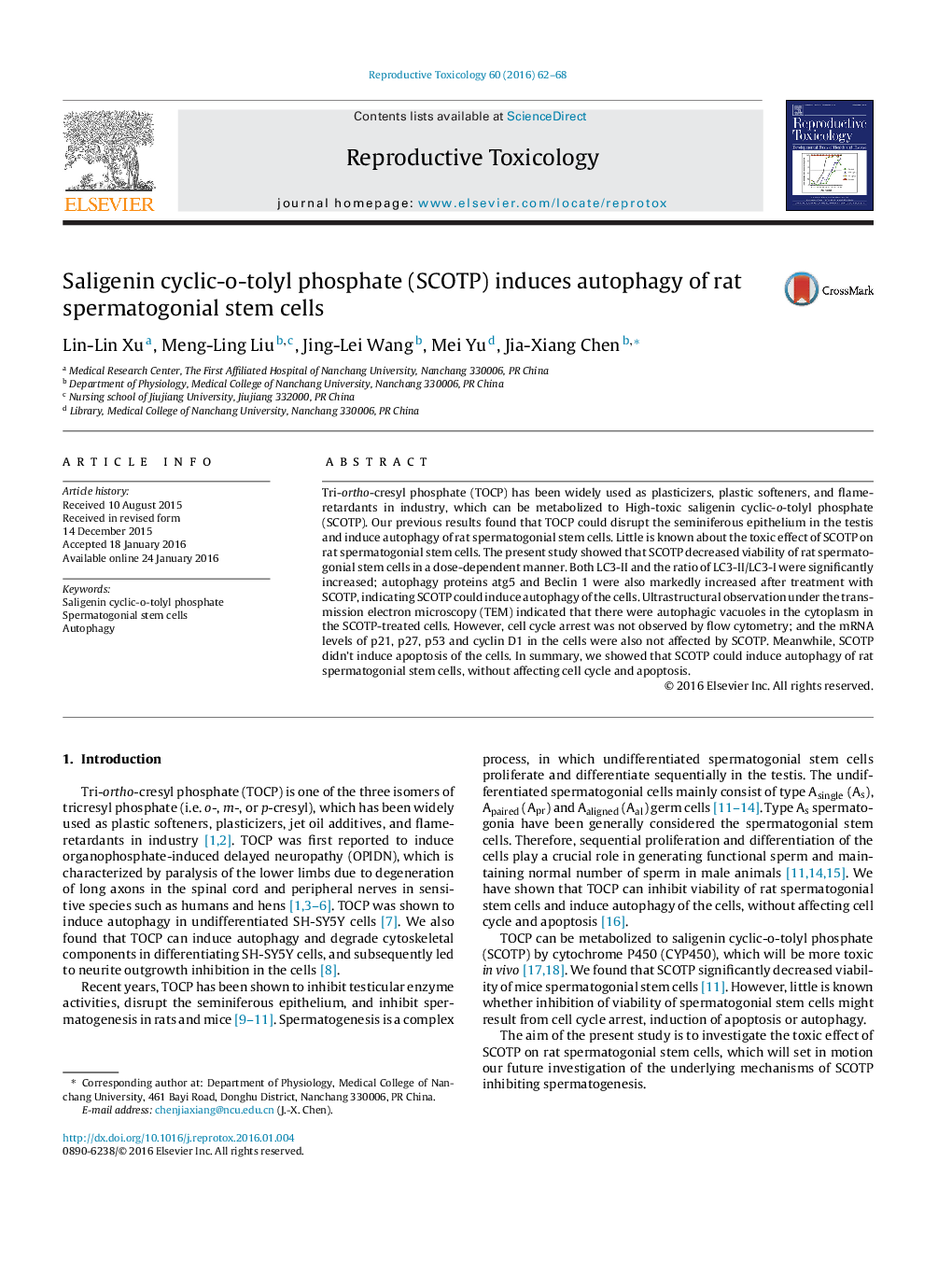| کد مقاله | کد نشریه | سال انتشار | مقاله انگلیسی | نسخه تمام متن |
|---|---|---|---|---|
| 2593323 | 1562159 | 2016 | 7 صفحه PDF | دانلود رایگان |
• SCOTP decreases viability of rat spermatogonial stem cells.
• SCOTP induces autophagy in rat spermatogonial stem cells.
• SCOTP does not lead to cell cycle arrest.
• SCOTP does not induce apoptosis of rat spermatogonial stem cells.
Tri-ortho-cresyl phosphate (TOCP) has been widely used as plasticizers, plastic softeners, and flame-retardants in industry, which can be metabolized to High-toxic saligenin cyclic-o-tolyl phosphate (SCOTP). Our previous results found that TOCP could disrupt the seminiferous epithelium in the testis and induce autophagy of rat spermatogonial stem cells. Little is known about the toxic effect of SCOTP on rat spermatogonial stem cells. The present study showed that SCOTP decreased viability of rat spermatogonial stem cells in a dose-dependent manner. Both LC3-II and the ratio of LC3-II/LC3-I were significantly increased; autophagy proteins atg5 and Beclin 1 were also markedly increased after treatment with SCOTP, indicating SCOTP could induce autophagy of the cells. Ultrastructural observation under the transmission electron microscopy (TEM) indicated that there were autophagic vacuoles in the cytoplasm in the SCOTP-treated cells. However, cell cycle arrest was not observed by flow cytometry; and the mRNA levels of p21, p27, p53 and cyclin D1 in the cells were also not affected by SCOTP. Meanwhile, SCOTP didn't induce apoptosis of the cells. In summary, we showed that SCOTP could induce autophagy of rat spermatogonial stem cells, without affecting cell cycle and apoptosis.
Journal: Reproductive Toxicology - Volume 60, April 2016, Pages 62–68
